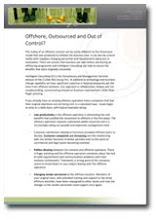RSG Director Adam Meadows says that new CIPD findings on lack of diversity shows how much still needs to be done to help women achieve career goals.
The CIPD’s report Gender Diversity in the Boardroom launched yesterday, and demonstrates how much business is letting women down; not just at senior level, but across the workplace in general.
The researchers spoke with 452 senior HR professionals and found that more than a quarter of businesses do not monitor the gender profile of their organisations, and that nearly half (44%) are unaware of the Government’s target to have 25% female representation on company boards by the end of this year.
It also points out how dramatically far from this goal UK Plc actually is by referencing the Government’s October 2014 interim review; which shows that only 8.4% of executive directors in Britain are women. The Government review stated that more success has been made in non-exec positions, with 27.9% of these being filled by women.
Most businesses, it seems, are also unaware of the government’s Think, Act, Report initiative; a step-by-step framework for improving gender equality in the workplace. Only 17% of businesses said they had heard of it, despite it having been launched in 2011.
And yet, the research also shows that 89% of the HR professionals surveyed think that a good level of gender diversity can improve boardroom effectiveness. Just 6% disagreed and 5% were ‘unsure’. This clearly shows a massive gap between how businesses are ‘talking the talk’ but are unwilling to embrace the practical implementation of gender diversity by ‘walking the walk’.
However, if we don’t want to be forced into dealing with EU mandatory targets, the time to act on these issues really is now. At RSG, we share the opinion of 60% of the CIPD’s survey respondents in disagreeing with such measures. Almost universally, we find that women want to be appointed for their skills and talent.
Instead, we believe that the glass ceiling will never be removed unless the daily working lives of women are improved and that they are given the tools and support they require to climb, as the CIPD put it, ‘the glass staircase’ to be within the grasp of senior level positions in the first place.
In truth, it feels as if this conversation is already getting old. It’s time for leaders and businesses alike to work with what we’ve got to understand how to create a sustainable framework for equal female representation. And then to just get on and do it.







